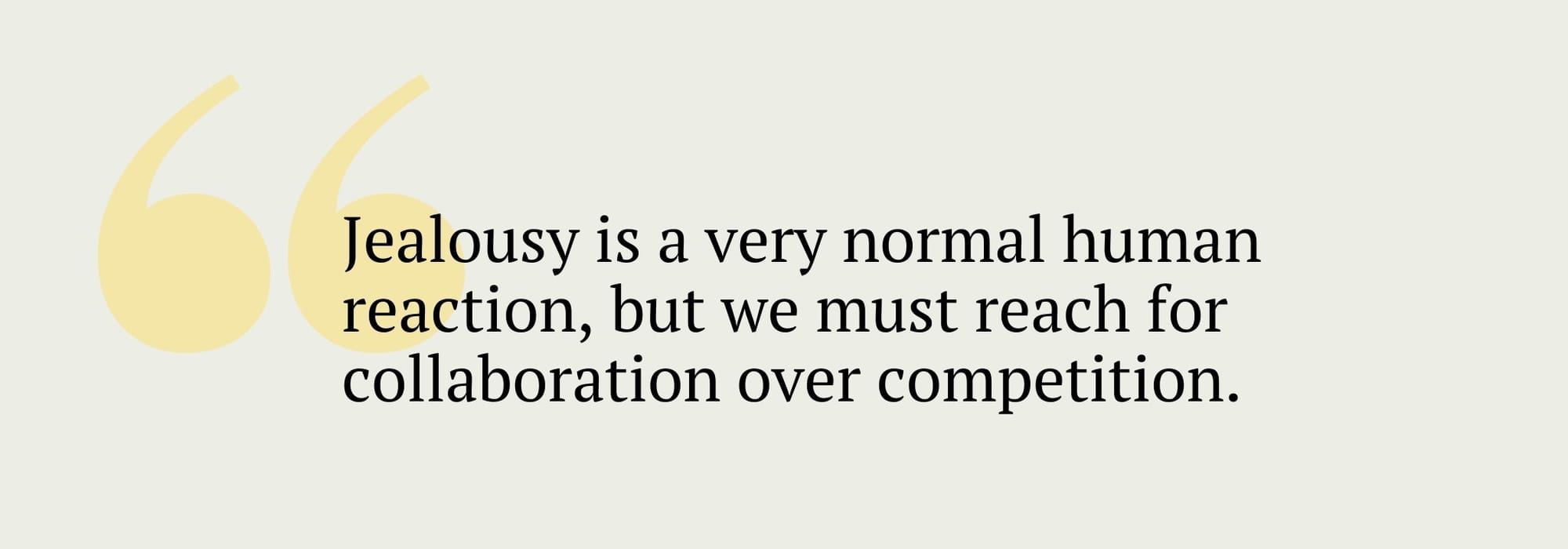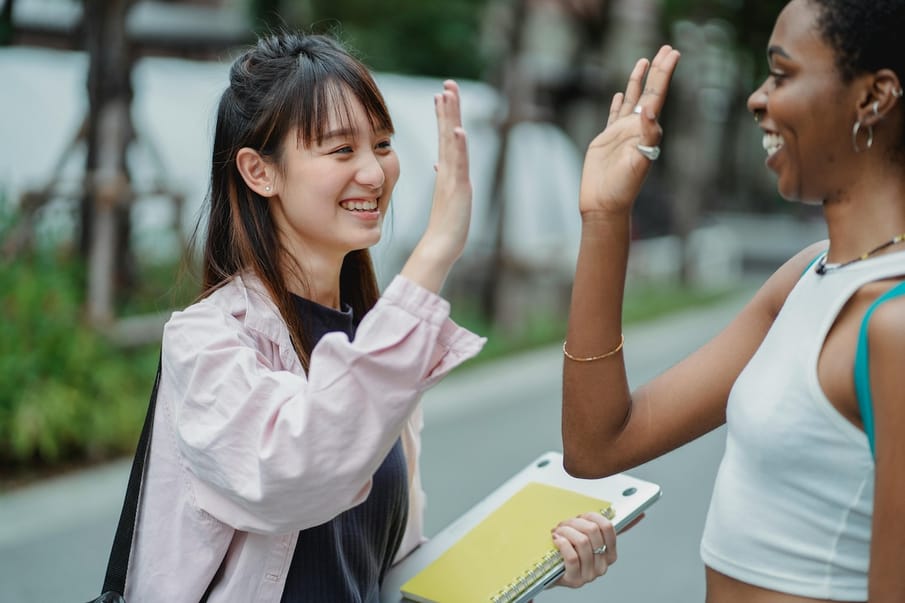Turn the tables on a culture of competing, and instead see the value in celebrating each others’ successes
I wouldn’t be where I am today if it wasn’t for the women in my life. More specifically, the women in my industry – from the friends to strangers who have been transparent about what they are charging, handed over opportunities when they couldn’t do a job, and invited me to join them in rooms that I would never have been invited into.
This couldn’t be more different to the world I grew up in where, in my school, we were taught that everyone was your competitor. It was most obvious within grades, actively being taught that it didn’t matter if you got 98% if someone else got 99%, because you could still do better. That helping someone else with their homework would be putting them before yourself. It was an environment where an ‘each for its own mentality’ was deeply ingrained. It extended to when we started socialising with boys, and even moved on to more trivial things like not helping each other with luggage on the first day of term, even if you were an 11-year-old girl struggling up four flights of stairs with three massive suitcases. I still remember the culture shock when I went to university, and was amazed that someone would help me carry my suitcases, and didn’t want anything in return!
It took entering the working world, and befriending a few people in my industry, to realise how different people could be. I am only an author today because two women asked me to be in their books, and while both were relative strangers at the time, they are friends today. I only got an agent because, again, a stranger at a party gave me solid advice about what I deserved.

One of my career highlights has been featuring as a life coach on This Morning, but very few know that this opportunity came about because of someone putting in a good word for me. I called a woman to discuss her management team (as I was thinking of moving), and she had suggested I would be really good on TV. We had only met once before, so she didn’t know that I had in fact been pursuing a career in broadcasting for more than a decade. She sent an email recommending me, and anytime I have given her credit for this, she has refused it. She insists that they wouldn’t book me if I was no good, and while that is true, I know that you can be the best in the world at something, and if no one opens any doors for you, you won’t go anywhere!
Meeting women who would end up being my biggest cheerleaders made me realise how exhausting constantly competing was, and it wasn’t even advantageous career-wise because it left me feeling so alone and isolated. It turns out I had met women who were living the ‘shine theory’ long before I knew what it was. Shine theory is a concept created by Aminatou Sow and Ann Friedman that I learned about while reading their book, Big Friendship. Underpinning it is the idea that if you shine, I shine, too.
Most recently, I wrote about it in my own friendship book, Bad Friend, as I believe it’s the best antidote to all the competition, jealousy, and bitchiness that female friendship is stereotypically known for. Aminatou and Ann said that jealousy is not a failing of the theory, that it is a very normal human reaction, but that we must reach for collaboration over competition.
As women, we have bought into the narrative that there are fewer seats at the table for us, and therefore we are forced to compete for the one seat available, rather than advocating and pushing for more to be added for us.
For me, shine theory is also about removing the comparison and scarcity mindset that we can’t all win. Another person’s success does not take away from you, or your own. It is so tempting to make it personal, but, sometimes in life, it will be about you, and sometimes it is someone else’s turn in the spotlight. When it is your turn, you will be so glad you have people around you who support you in your triumphs, and will shout as loudly about your wins as their own. That is how we change the culture!


Comments